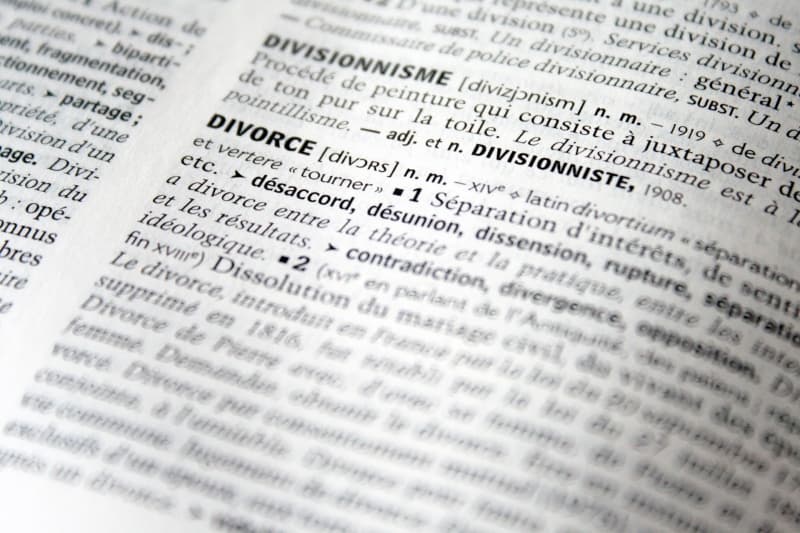Supreme Court hands down judgment in Villiers v Villiers.

Legal Update by Giorgia Sessi.
Background
Charles and Emma Villiers married in 1994. They moved to Scotland the following year and lived there throughout their married life. The couple separated in 2012, when the wife and the parties’ daughter left the former matrimonial home and moved to England, where the wife continues to reside. Mrs Villiers issued a divorce petition in July 2013 on the basis of her habitual residence for 12 months preceding the presentation of the petition.
Mrs Villiers’ petition was dismissed with her consent in favour of Mr Villiers’ writ of divorce which was issued in Scotland pursuant to the Domestic and Matrimonial Proceedings Act 1973 Schedule 1 paragraph 8(1)(c), which provides that where there are competing jurisdictions within the UK, the country within the UK where the parties last lived together is the proper jurisdiction for the suit.
In 2015, Mrs Villiers made an application under section 27 of the Matrimonial Causes Act 1973 (MCA 1973) in England seeking maintenance. England and Scotland have different approaches to financial provision, the main difference being that maintenance in Scotland is limited to three years, whereas s27 MCA provides that periodical payments can last “for such term as may be specified in the order”. The England and Wales jurisdiction would therefore produce a more financially advantageous result for Mrs Villiers in terms of maintenance.
Mr Villiers applied to stay the wife’s claim for interim maintenance, challenging the jurisdiction of the English courts on the basis of Articles 12 (Lis Pendens) and 13 (Related Actions) of Council Regulation (EC) No. 4/2009 (incorporated into domestic legislation via the the Civil Jurisdiction and Judgments (Maintenance) Regulations 2011 – ‘the Maintenance Regulation’).
At first instance, Parker J determined the English courts did have jurisdiction under section 27 of the MCA 1973 and made an order that the husband pay the wife £2,500 per month in interim maintenance as well as £3,000 per month for legal funding. She concluded that the husband’s issue of a writ in Scotland did not constitute or include an application for maintenance in Scotland.
The Court of Appeal (Villiers v Villiers [2018] EWCA Civ 1120) upheld the decision at first instance. Mr Villiers sought and obtained permission to appeal the matter further.
The final determination of the wife’s application for financial orders under section 27 was adjourned pending the appeals. The order by Parker J for payment of interim periodical payments has not been stayed, but the husband has failed to comply with it.
The grounds of appeal
The Supreme Court justices were asked to determine the following issues (as set out by Lord Sales):
- On the proper interpretation of section 27(2), does an English court have jurisdiction to make any order for maintenance in a case with no international dimension at all?
- If the answer to (1) is “yes”, does the English court have a discretion which has survived the promulgation of Schedule 6 of the Civil Jurisdiction and Judgments (Maintenance) Regulations 2011 (‘Schedule 6’ and ‘the 2011 Regulations’), to stay maintenance proceedings before it on the general ground of forum non conveniens (and if so, should it exercise that discretion so as to give priority to the Scottish courts to deal with financial issues between the parties)?
- If the answer to (2) is “no”, was the purported removal by Schedule 6 of a general discretion to stay proceedings on the ground of forum non conveniens ultra vires the Secretary of State’s powers in section 2(2) of the European Communities Act 1972 (ECA 1972)? (the Secretary of State intervened in the appeal as a result of this ground) and
- If the answer to (3) is “no”, with the result that the jurisdictional position is governed by the express terms of the Maintenance Regulation, as adopted into domestic law by Schedule 6, is the husband’s divorce proceeding in Scotland a “related action” for the purposes of article 13 of the Maintenance Regulation (as so adopted) and, pursuant to that provision, should the English court decline jurisdiction in respect of the wife’s claim for a maintenance order under section 27?
Lord Wilson identified a fifth issue to consider, namely whether the Maintenance Regulation itself regulates the allocation of jurisdiction to hear maintenance applications as between the various parts of the UK.
The Supreme Court decision
The matter was heard over the course of two days on 8 and 9 December 2019 and judgment was handed down on 1 July 2020.
By a majority of three justices to two (Lord Sales, Lord Kerr and Lady Black, with Lord Wilson and Lady Hale dissenting), the Supreme Court dismissed Mr Villiers’ appeal. The full judgment is reported at [2020] UKSC 30 and can be downloaded here.
On the question of jurisdiction (ground 1), the Supreme Court unanimously rejected the Appellant’s submission that section 27(2) only applies in inter-state cases. Lord Sales, giving the lead judgment, observed at [26] that “section 27(2) is intended to cover two classes of case: (i) inter-state proceedings, in relation to which jurisdiction is governed by the Maintenance Regulation, and (ii) intra-state proceedings, in relation to which jurisdiction is governed by Schedule 6”. His interpretation was agreed by the other Supreme Court Justices.
On ground 2, the Supreme Court Justices agreed with the Court of Appeal and determined that the English court does not have a discretion to stay maintenance proceedings before it on the general ground of forum non conveniens. This is on the basis that Schedule 6 allows a maintenance creditor to choose the jurisdiction in which to bring a maintenance claim, and the doctrine of forum non conveniens is excluded.
Lord Sales commented at [36] “In my view, it is clear that Schedule 6 is intended to be a comprehensive code to govern questions of jurisdiction in relation to maintenance claims with a cross- jurisdictional dimension within the United Kingdom, just as the Maintenance Regulation provides such a code in relation to such claims with an inter-state cross- jurisdictional dimension” and concluded “There is no scope whatever for the operation of a forum non conveniens discretion in the context of the legislative scheme in Schedule 6”.
Lady Black added at para [73] that, despite the unavailability of the forum non conveniens discretion, normal case management powers remain available to the court. A stay on the ground of forum non conveniens shall be distinguished from an order adjourning the case to enable the court to better decide the issue.
On ground 3, the Justices again unanimously disagreed with the Appellant and adopted the submission made by the Secretary of State that the making of the 2011 Regulations, including in particular Schedule 6 thereto, was authorised by section 2(2)(b) of the ECA 1972. Lord Sales observed at [38] “The purpose and effect of Schedule 6 is to ensure that there is one coherent, certain and predictable set of rules which apply to all maintenance claims with a cross- jurisdictional dimension, whether the crossing of jurisdictions occurs on an inter- state basis or on an intra-state basis. To have one set of rules which applies in both types of case makes obvious sense in a world where people are highly mobile, and liable to move between jurisdictions internationally and within the United Kingdom”.
Lord Wilson commented that the husband faced ‘insuperable obstacles’ by conceding that the Secretary of State had power under section 2(2)(b) of the ECA 1972 to resolve issues of jurisdictional rivalry between different parts of the UK in relation to maintenance applications. It therefore could not be said that suggested inclusion in Schedule 6 of one particular provision in that regard was beyond his power [141-145].
The justices expressed differing views on ground 4. The majority (Lord Sales, Lord Kerr and Lady Black) dismissed it on the basis that the husband’s divorce proceeding in Scotland is not a “related action” within article 13 of the Maintenance Regulation. Neither article 13(1) nor article 13(2) has any application in this case to permit the English court to decline jurisdiction in relation to the wife’s maintenance claim based on section 27 (per Lord Sales at [40]). The core object of article 13 is to deal with the situation where parties make cross-maintenance claims, both constituting ‘maintenance creditors’ and therefore entitled to a choice of jurisdiction pursuant to article 3. This would result in a clash of jurisdictions and a risk of conflicting judgments. If the word ‘actions’ meant proceedings generally, the fundamental object of the Maintenance Regulation would be undermined. Lord Sales observed that the risk of conflicting judgments needs to ‘direct, real and present, not a speculative possibility’ [45] and concluded that the Scottish proceedings brought by the husband and the wife’s maintenance claim under s27 were distinct matters.
Despite agreeing with the majority view expressed by her colleagues, Lady Black commented at [79] that she found the interpretation of article 13 ‘extremely difficult’, adding that ‘the natural response of a family lawyer might be to say that obviously one court should resolve all the financial issues that arise upon the ending of a marriage’ and that ‘the idea of two courts within the United Kingdom both making orders which will regulate the finances of the parties to a marriage following divorce is not very palatable’.
Lord Wilson, who gave the lead dissenting judgment and with whom Lady Hale agreed, held that there were related actions pending in England and Scotland, so that the English court, not being the court first seised does have has power under article 13 to stay the wife’s application under section 27. He considered that the definition of related actions in article 13(3) must be driving at the situation where it is expedient to hear and determine together the issues raised in the two actions, and possible to do so because the actions can be consolidated in the court first seised and heard together there. He concluded that this issue should be remitted to a judge of the Family Division (Parker J having now retired) to determine whether the power to stay or decline jurisdiction should be exercised.
In respect of the fifth point, Lord Wilson rejected the rejects the Secretary of State’s argument that the Maintenance Regulation itself determines questions of jurisdiction as between the various parts of the UK [128-134].
In a postscript added upon reading the majority judgments [180], Lord Wilson raised concerns on the court’s interpretation of article 13 and noted two adverse consequences of the Supreme Court’s decision. Firstly, it will give ‘untrammelled licence’ to spouses to go forum-shopping, placing the paying spouse at an initial disadvantage regardless of the merits of their case. Secondly, it will prevent a court in one part of the UK to decline to determine a wife’s maintenance claim even when a court in another part alone has power to determine a claim by one spouse or the other for transfer of property or for some other adjustment or for a pension sharing order.










